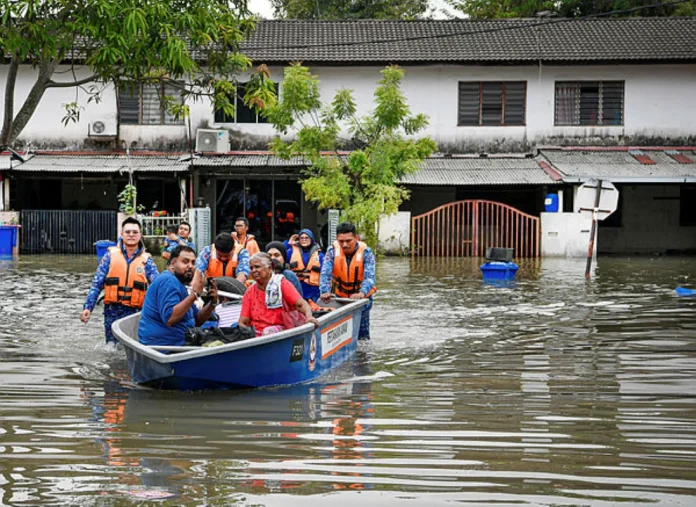Such information should be standardised and mandatory in property listings and sales agreements: Educator
PETALING JAYA: The government should establish a “National Flood-Risk Map Portal” to help homebuyers make informed decisions and compel developers to prioritise safer, climate-resilient sites, said Universiti Teknologi Malaysia property economics and finance expert Assoc Prof Dr Muhammad Najib Razali.
He said this would promote transparency and accountability by giving developers and buyers open access to flood-risk data before any property transaction takes place.
“Flood-risk information should be public, standardised and mandatory in all property listings, brochures and sales agreements.”
He said Malaysians have no easy way to verify if a property sits on a floodplain, although agencies such as PlanMalaysia and the Department of Irrigation and Drainage possess the data.
Malaysia lacks a centralised public flood-risk portal.
While agencies maintain their own flood maps and hazard databases, access remains fragmented and largely unavailable to the public.
Najib said a unified and interactive national map would mirror successful practices in countries such as Japan, the United States and the United Kingdom, where flood-risk information forms part of property disclosure requirements.
“Malaysia could emulate these models by creating a portal accessible to buyers and developers, making flood-risk disclosure mandatory in sale and purchase agreements, and linking these disclosures to insurance incentives that reward low-risk properties.”
He described Deputy Prime Minister Datuk Seri Fadillah Yusof’s recent announcement to include flood-risk assessments (FRA) in housing project approvals as a transformative and necessary policy shift, but said its success would depend on effective coordination between the federal and state governments.
He said the inclusion of FRA in new housing approvals signals Malaysia’s transition from reactive disaster management to proactive, climate-resilient planning, aligning the country with international standards.
“For decades, housing approvals have focused primarily on land use and economic feasibility, often overlooking environmental risk.
This reform is urgent and long overdue, especially given the increasing frequency and intensity of floods linked to climate change.”
Najib said the December 2021 floods, which caused losses exceeding RM6 billion, highlighted the need for stronger urban planning controls to prevent developments on floodplains and reduce future disaster costs.
However, he cautioned that implementation may not be uniform as land and planning matters fall under state jurisdiction.
“Many local councils lack hydrologists, geographic information systems analysts or climate specialists, and flood data remain fragmented across agencies.
“The government could consider forming a federal–state coordination mechanism to oversee data sharing, provide technical support and review high-risk project proposals before approval,” he said.
Najib urged authorities to prioritise retrofitting in existing housing areas located in flood-prone zones, stressing that flood management should extend beyond new developments.
He recommended upgrading drainage systems, expanding retention ponds and introducing green infrastructure, such as rain gardens and permeable pavements.
He acknowledged that retrofitting could be costly, and since developers are no longer liable for older projects, the financial burden often falls on homeowners or local councils.
He proposed that the government introduce tax incentives, matching grants or public-private partnerships to fund resilience upgrades, citing Singapore’s Active, Beautiful, Clean Waters Programme, which co-funds up to 80% of flood mitigation costs.
Najib said Malaysia’s long-term goal should be to mainstream climate resilience across all urban planning and housing policies.
“This includes integrating FRA into the environmental impact assessment process, promoting nature-based flood defences and offering incentives such as tax rebates or lower financing rates for flood-resilient designs.
“Malaysia’s decision to integrate flood-risk assessment into housing approvals represents a pivotal step towards climate-resilient, sustainable development.
“With coordinated planning, transparent data and targeted incentives, this policy could become a cornerstone of resilient nation-building,” he said.








